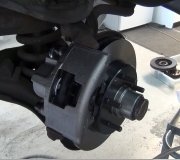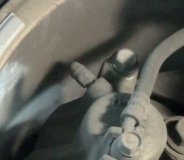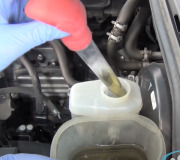1. You don't HAVE to replace both calipers. In fact, I wouldn't replace either one. If you haven't noticed the brakes dragging, look instead for rust or impacted mud that's preventing the caliper from sliding freely. Any caliper mounting surfaces and bolts should be cleaned up then coated lightly with high-temperature brake grease such as "Rusty Lube".
This guide should help us do the job.
https://www.2carpros.com/articles/brake-caliper-replacement
2. No.
3. Physically you can do anything but the linings will have vastly different coefficients of friction so they won't grab with the same strength. That will result in a brake pull, however, you might not notice it on that vehicle. Most front-wheel-drive vehicles use a split-diagonal brake system meaning the left front and right rear brakes are on one hydraulic circuit. That's done in case there's a leak. If the front brakes worked together and popped a leak, only the rear brakes would work, and there's so little weight back there, they'd find you in the next county before you could stop! With the split-diagonal system, a leak would render only one front brake inoperative which would lead to a horrendous pull on rear-wheel-drive cars, but the engineers have modified a non-adjustable alignment angle called "scrub radius" to offset the effects of that pull. Chrysler is the only company so far that has been able to completely eliminate that brake pull problem. For that reason, you might not notice a pull with two different types of pad material. It's easy to just change one side first, and if you have problems, you can always do the other side later.
4. Eventually the new linings will wear to match the grooves in the rotor. Until that happens, stopping distance will be increased. We've all done things like that, but a professional would never do that on a customer's car. Those are the types of things insurance investigators love to find. Anything that is not in factory original condition could lead to your being found partly liable for a crash caused by the other guy.
On the other hand, most rotors today are so thin when new that there isn't much that can be legally machined off. They must be replaced, but the good news is most new rotors are not real expensive.
5. No special procedures for the abs sensor. You DO want to watch that the master cylinder doesn't run dry during bleeding or when replacing parts in the hydraulic system. To prevent the fluid from gravity-bleeding empty, a simple trick is to use a stick from the seat cushion to hold the brake pedal down an inch or two. Gravity won't be strong enough to pull the fluid past the lip seals in the master cylinder. Be very careful to not get any petroleum product such as oil and grease in the brake fluid. That will destroy ALL rubber parts in the hydraulic system. That would get real expensive, especially with anti-lock brakes.
caradiodoc
Thursday, December 2nd, 2010 AT 12:53 AM



